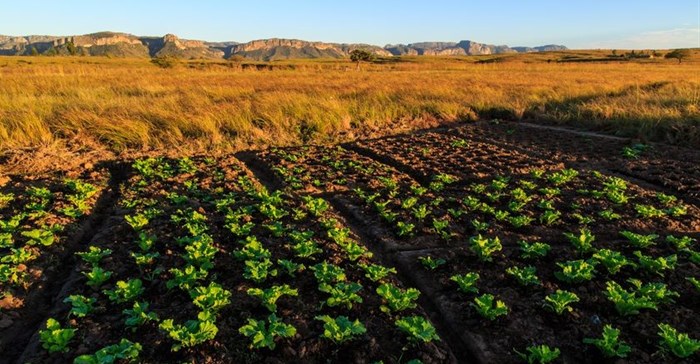
"We have reached the limit of the paradigm of the green revolution. We cannot continue to produce food in the same way we have", relying on intensive farm techniques, chemical inputs and mechanisation, and "need to shift to a more holistic approach on sustainability," said Graziano da Silva.
The book is a seminal contribution to the importance of getting policy frameworks right to face the challenges posed by climate change and a growing global population, Graziano da Silva said.
Policies are needed most to address the conflicts of interest that inevitably arise amid the need for change, he said. Citing the need to enhance on and off-farm income and opportunities for rural communities around the world, especially in the developing world, he said that too often trying to shoehorn new techniques into existing patterns is unable to "integrate all the actors and interests around and to move ahead."
He added: "The only way to put them together and harmonize things to move ahead is to revise policies and guidance."
A 585-page tome published by FAO with Elsevier's Academic Press Division, the book brings together the work of 78 experts from FAO as well as a wide array of universities and organisations around the world.
It is organised through 48 chapters and five sections, covering areas ranging from demographics and rural poverty to biodiversity and water scarcity, while also looking at viable examples of how to increase agricultural productivity by integrating different sectors without harming and even increasing existing environmental and social capital.
Its analyses make a point of identifying and balancing trade-offs that typically arise and highlighting successful governance and policy initiatives for resolving them at global and national levels.
Governments, scientists, civil society and the private sector need a common understanding of concepts, methods and strategies, which "should not be done in silos but by looking holistically across sectors," said Clayton Campanhola, chief editor of the publication and the leader of FAO's Strategic Programme for Sustainable Agriculture.
The final section focuses on research and innovation, policies and incentives, resource mobilization, and governance and institutions - the four areas considered most critical to the meaningful and needed structural transformations for sustainable food and agriculture systems.
It ends with a set of recommendations that, if adopted and adopted, would improve the productivity and sustainability of agriculture and food systems.
The new publication is targeted at policymakers, agricultural research and extension professionals, development practitioners, and students and teachers of biological, social and agricultural sciences. It complements FAO's recent Transforming Food and Agriculture to Achieve the SDGs, which outlines 20 interconnected actions leading to the transformation changes required.